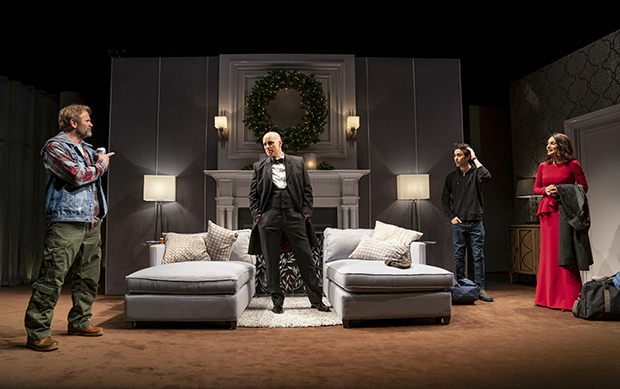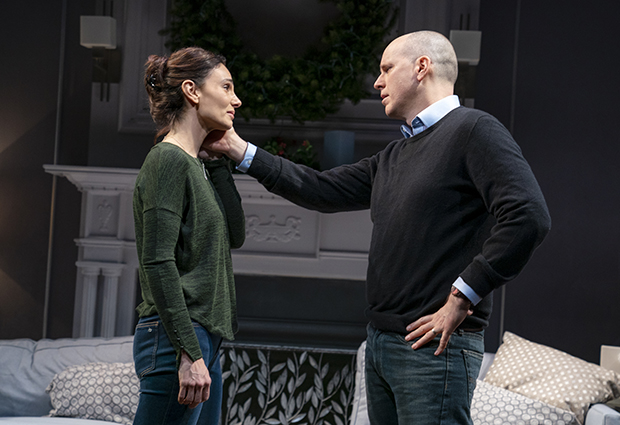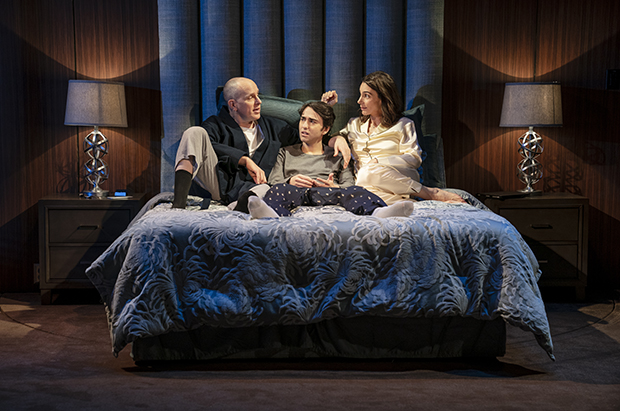Donald Margulies's Long Lost Is a Long, Lost Opportunity for New Dramatic Insights

(© Joan Marcus)
The seemingly idyllic life of a couple is interrupted by the arrival of an estranged family member. Where have we seen that before? The latest play to explore this dramatically fertile terrain is Donald Margulies's Long Lost at Manhattan Theatre Club's New York City Center — Stage I. There's one problem: Margulies forgot to supply the drama.
David (Kelly AuCoin), a Wall Street consultant, and his brother Billy (Lee Tergesen), a hardcore drug addict, haven't spoken since Billy destroyed their family. But after a stint in jail — and getting clean-ish — Billy has arrived at David's office bearing news of a fatal diagnosis and the need for a place to stay. David invites Billy back into his life, but doesn't expect the consequences this action will have on his philanthropist wife, Molly (Annie Parisse), their college-aged son, Jeremy (Alex Wolff), and their relationship itself.
Treading the same ground that Margulies frequently tackles, Long Lost explores the limits of familial responsibility. There's some good dialogue, and for anyone who has cut off a close relation, the piece will hit close to home. However, Long Lost can't shake the scent of mothballs. It lacks original insights and compelling theatrics, and ends with an unsurprising, "had to be done" conclusion. There have been better plays about this subject matter, and Margulies has written some of them.

(© Joan Marcus)
Daniel Sullivan's production doesn't do the play's questionable dramaturgy any favors, either. His staging actually compounds the bigger problems I had with the unfocused script — namely, its underdeveloped characters and lack of a discernible protagonist. The design does a certain amount of work — Toni-Leslie James's costumes are chic (even Billy's hobo duds are stylish), Kenneth Posner's lighting and Daniel Kluger's underscoring are appropriately troubled, and John Lee Beatty has never met a beautifully opulent living room he couldn't put on three turntables.
But I wished Parisse's character were more than just an afterthought, and for AuCoin's David to have a little more personality. Tergesen is a compelling presence, but he isn't a looming one, and Billy probably could have been more attention-grabbing if he were more of a live wire. Wolff perfectly captures the naïveté of a kid about to start his own life, while wrestling with the one that is rapidly disappearing.
Ultimately, watching a play about affluent people with family problems felt especially passé in our current theatrical climate. If Margulies introduced new insights, it would have seemed less so, but Long Lost is just a lost opportunity.

(© Joan Marcus)










